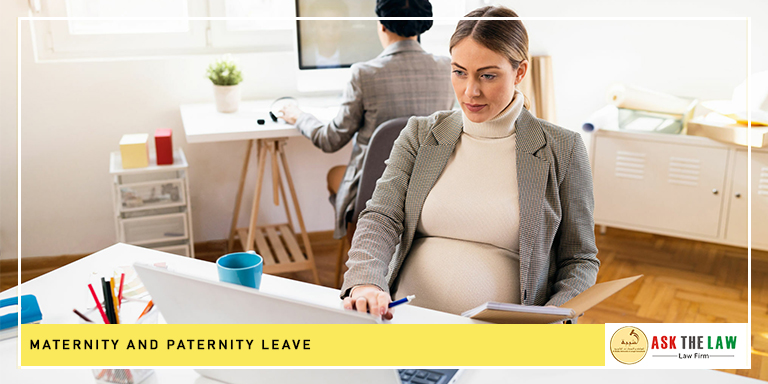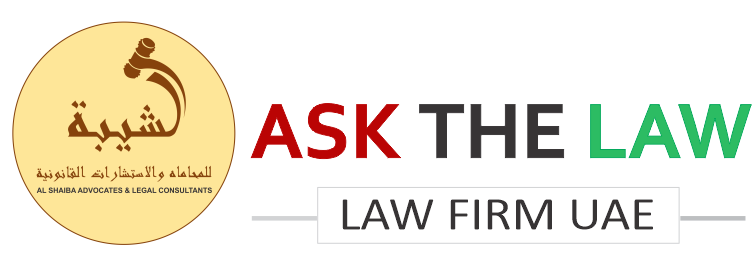
Everything you need to know about Maternity and Paternity Leave
UAE Labour and Employment Law provides a right to working mothers that they can take paid maternity leave. This is facilitated by UAE Labour and Employment Law, and employers have no right to negate this or refuse to provide the maternity leave. This break is provided by law so the pregnant mother could easily conceive her child. The article will be explaining each and every point about the maternity leave.
Maternity Leave
Maternity Leave is a leave provided to professional woman who is going to deliver a baby in short period of time, or in the coming month/s and she needs a break from her job. This way she can easily deliver the child and can have the break from her professional duties which is made her right by UAE Labour and Employment Law. She can easily deliver the baby and can spend time with her newborn for a good bonding and love. The very first time the maternity leave was granted in 1980 through UAE Labour Law 1989, Law #8 or also write as 8/1980. This Law was for private sector. The public sector was kept, different than this rule, and also in each Emirate of UAE. But the OLD laws have been revised now. Article 30, UAE Labour Law 22 describes the maternity leaves now. Now as per new Law, the total 60 days maternity leave is granted to professional woman where 45 days are fully paid and 15 days are only half paid. Maternity leave can be started Thirty Days (30), before the expected delivery date, as per the Law. Our Labour and Employment Lawyers can provide you a very comprehensive details if you have any matter to be handled.
Salary Rule
If there is a medical requirement due to any reason or emergency then another 45 days can be granted to woman, but these 45 days will not be paid. Labour and Employment Law UAE does not provide any paid leaves more than 45 days. She deserves full salary plus allowances, benefits and including commissions/incentive plan, if mentioned any, as per her Labour Contract or Internal Employment Contract. But she has to work in the organization at least more than a year to get this reward. This way she is entitled to get paid the full salary. But if she has worked less than a year then she deserves half salary.
Private and Public Sectors Both:
Professional woman, who is expecting a baby is entitled for a maternity leave. Professional woman from both sectors, private and public sector is entitled to receive the maternity leave and its benefits, though the laws can be changed for both sectors and all the Emirates of UAE. The important point is that HOLIDAYS are counted on Current Day Scheme. It means the holidays are also added e.g. Holidays, Week Ends, Government Holidays.
Available Extension
As per Law, the extension of maternity leaves up to 100 days can be requested, after finishing the maternity leave granted to expected woman. This is the maximum extension provided by the Law but law also states that there must be logical and reasonable medical reasons for the extra unpaid maternity leaves or the extensions. So, the extension is also possible and granted by the Law.
Breastfeeding
For the breastfeeding mothers, who breastfeed their kids, are granted two breaks in a working day for the first 6 months, half an hour each, total duration not exceeding one hour. This break is considered part of their working daily hours. Employers can’t deduct any salary during this period. Previously it was 18 months, which has been revised to 6 months. You can learn more here.
Termination will be considered unlawful
Employer can’t fire the employee just due to pregnancy reason. But the pregnant woman can be fired due to other reasons. But another thing needs to be understood that just to avoid progeny paid leaves, employer can’t find a lame excuse or false reason to fire the employee. It provides permanent worker to lodge the labour complaint for an unlawful termination, which can make the employee the entitled for asking the compensation. If after the maternity period or leaves, employer takes a decision to shift the employee to another department or office, then this is legal. Employer has right to shift or move an employee to similar or different job. Obviously, this is something which can’t be enforced beyond human being capacity.
Sick Leaves: Connection with Maternity Leaves
UAE Labour Law also tells that maximum sick leaves are 90 days. Based on valid reason and medical certificate, the illness which is related to pregnancy, will allow the woman to keep the sick leaves. It is paid as per the standards paying system which is first 15 days with full salary, next 30 days with half salary and balance 45 days with no salary
- Public sector federal employees will have 90 days maternity leave with full salary. 2 hours break of breastfeeding is also provided. This is for the Federal Employees.
- ABU DHABI grants 3 month paid maternity leave. Two hours of breastfeeding is also provided, as per Law, in first year of maternity.
- DUBAI also grants 3 moths paid maternity leave. Upon returning to work, the woman is also granted two hours of breastfeeding break, in the first year of pregnancy. DUBAI also allows the annual leave to be added, in maternity leave. This way woman is entitled to have 120 days indeed. If the child is born with special needs, then woman can have 1 year leave from the delivery date to on-wards.
- SHARJAH grants 120 days maternity leave, where 90 days are fully paid and rest are not paid.
DIFC Maternity Leave
Employees, working in Free Zone DIFC, have 65 Days maternity leave. This is defined by a separate Law of DIFC which is Article 36 of DIFC Law. Employee is entitled to receive full salary if the service is more than one year. First 33 days are paid as full salary and 32 days are paid as half salary. The annual leave ca also be added/connected here like Labour and Employment Law.
Paternity Leave
Paternity Leave is for the male employees. Three days paid paternity leave is provided by Law in Public Sector in the first 6 months of child. This is equally applicable in all the Emirates of UAE. For private sector the guideline for any paternity leave is up to 5 paid leaves. It can be taken by both father and mother of the child. DIFC provides 5 days paternity leaves if the male employee has completed 1 years of service.


